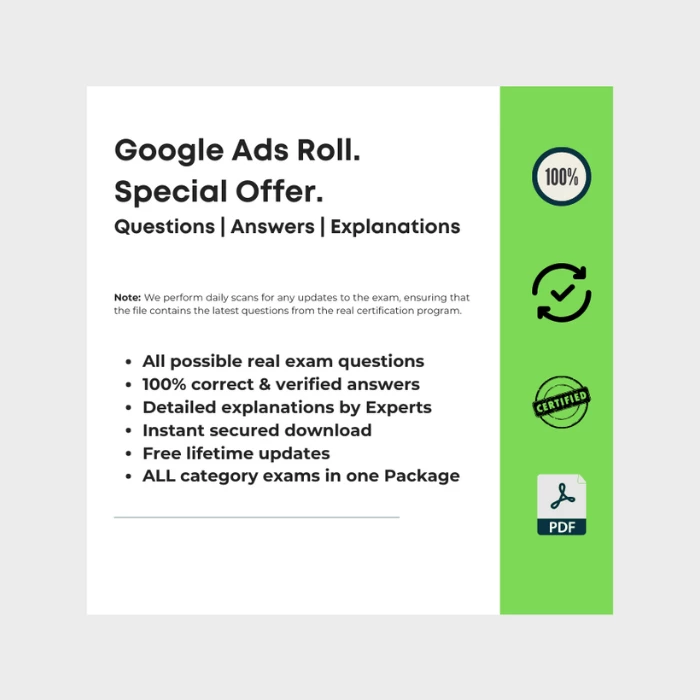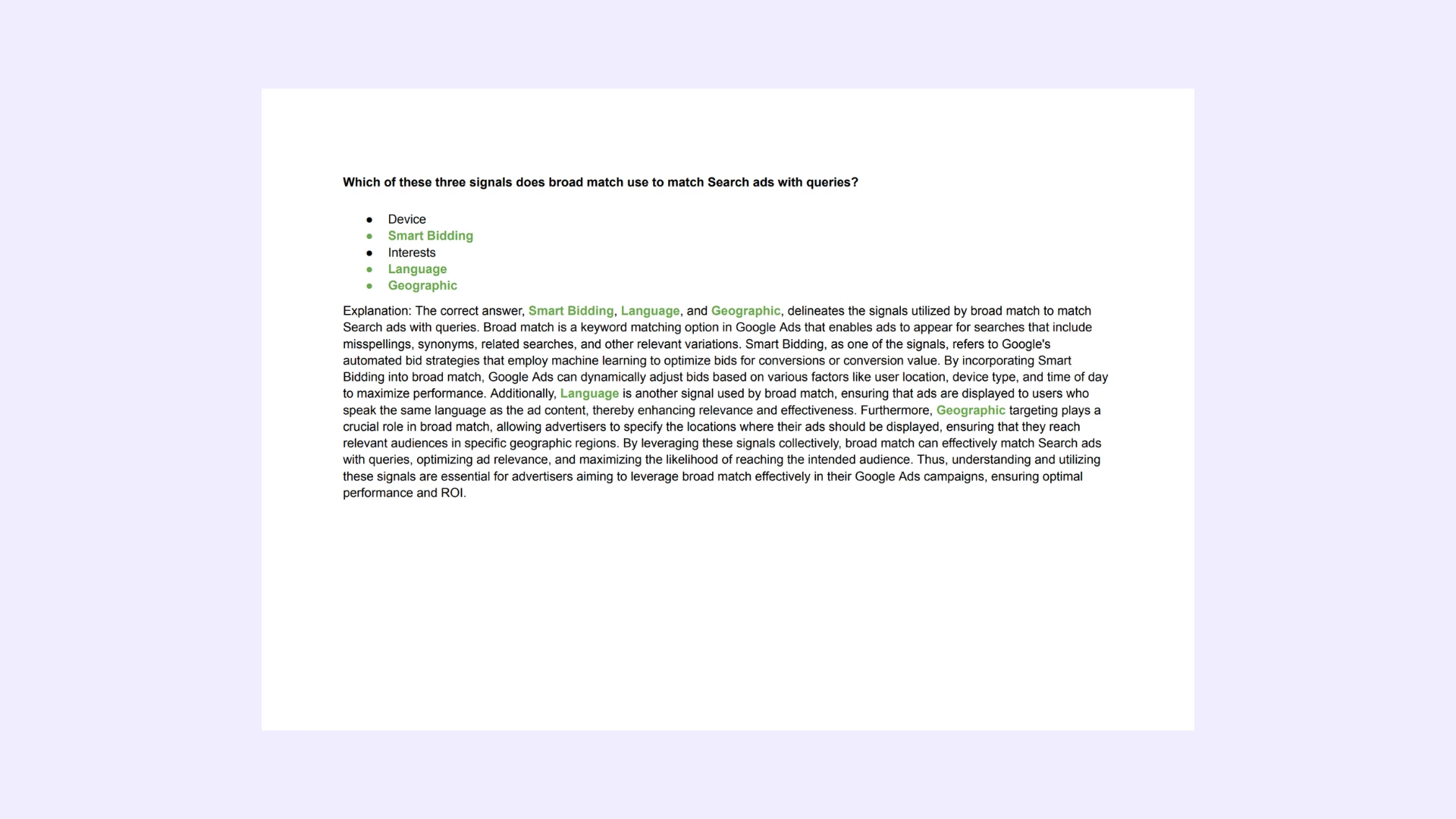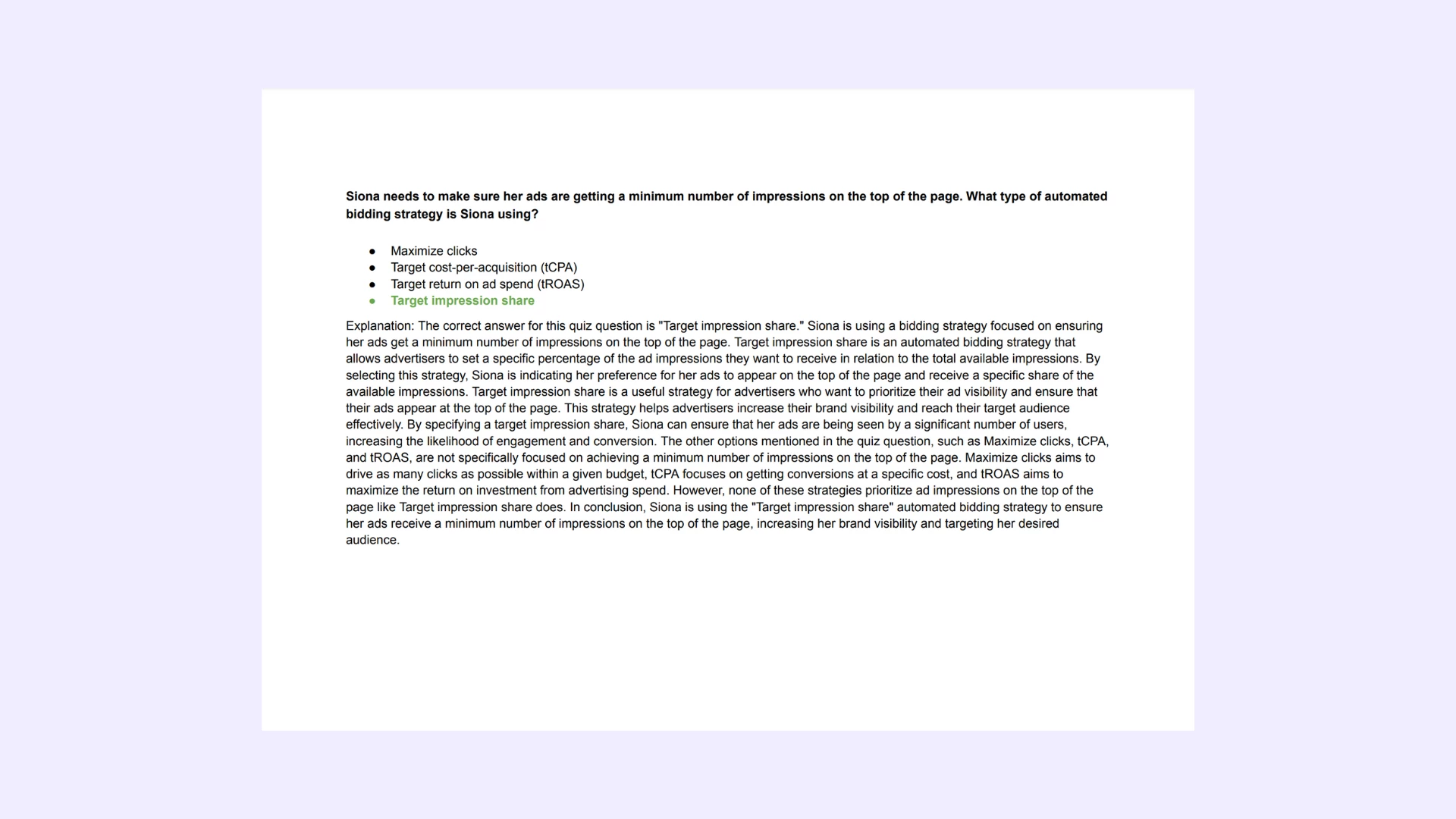Once Smart Bidding and broad match are implemented, which three campaign best practices should be followed?
Monitoring Quality Score
Using responsive search ads
Using contextual signals
Being mindful of negative keyword targeting
Using cross-device reporting
Choose an option to see if it’s correct. Check the explanation below. Learn Smarter, not Harder.

Google Ads Roll. Includes Answers for Every Real Google Ads Certification Exam.
All-in-One: Get all Google Ads exams answers with explanations in one bundle. This package includes answers for every current Google Ads certification. Regular updates to reflect the latest exam version. -> See what's included.
Questions | Answers | Explanations. Free Lifetime Updates.


Need a single cerification exam answers? Check out our -> list of certification exams answer keys. Learn Smarter. Obtain or Renew your certificates with peace of mind!
Explanation: Once Smart Bidding and broad match are implemented, which three campaign best practices should be followed?
Explanation: The correct answers are: **Monitoring Quality Score**, **Using responsive search ads**, and **Being mindful of negative keyword targeting**. After implementing Smart Bidding and broad match, it's crucial to adhere to these campaign best practices for optimal performance. First, monitoring Quality Score is essential because it directly impacts ad rank and cost-per-click. A higher Quality Score can lead to better ad positioning and lower costs. Second, utilizing responsive search ads enables Google to dynamically adjust ad creatives based on the user's search query and context, improving relevance and engagement. Lastly, being mindful of negative keyword targeting is critical to ensure that ads are not shown for irrelevant or unwanted search queries, thereby preserving budget and focusing on high-quality traffic. By following these best practices, marketers can maximize the effectiveness of their campaigns, achieve better results, and ultimately drive more valuable conversions.
Were do I find this certification program?
This certification program is available on the Google SkillShop Platform. With our file, you can get certified in just a few minutes. Free updates are included.
Save time on exams and spend more time practicing.
Best-value Guides
- Special Bundle Offer Google_Ads_Roll
- Special Bundle Offer HubSpot_Exams_Roll
- Special Bundle Offer Google_SkillShop_Roll
- Special Bundle Offer Marketing_Platforms_Roll